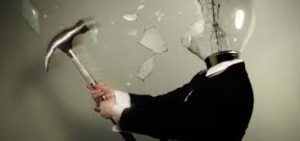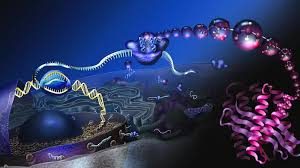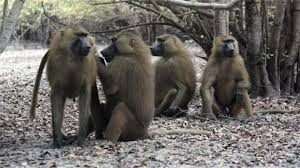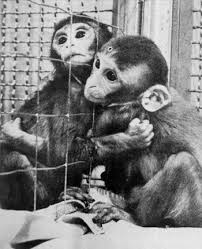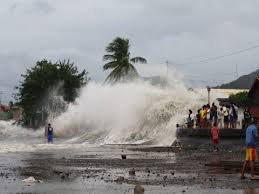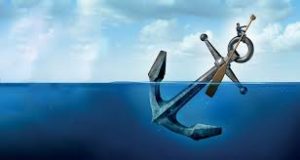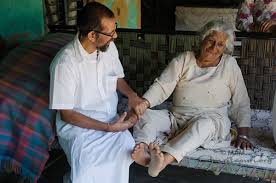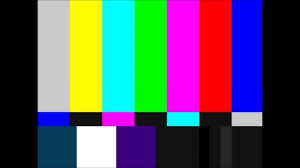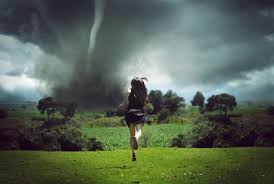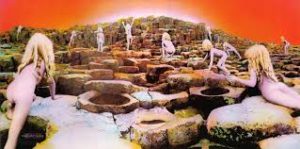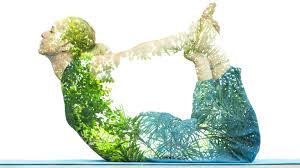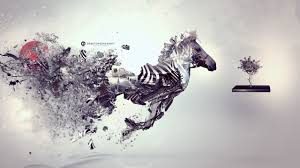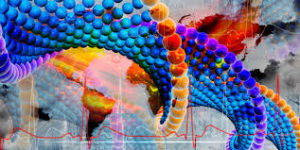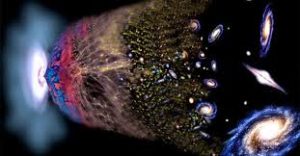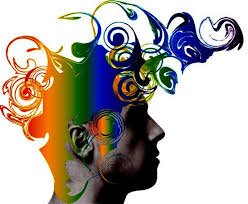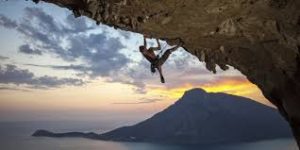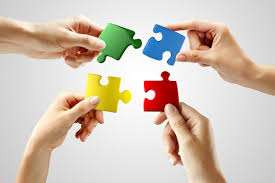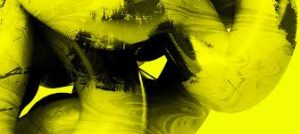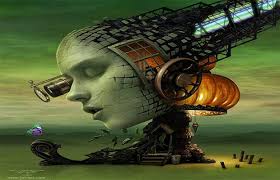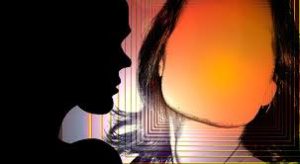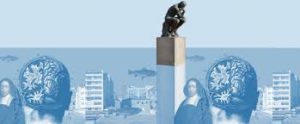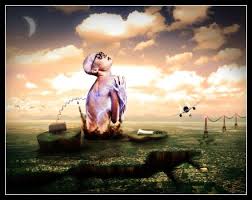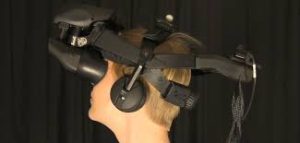Before we discuss the human situation more specifically in relation to health and “dis-ease” — let us consider the so-called states of health and disease as they apply in planetary terms, and as they operate in all species. This will give us a far vaster framework in which to understand the ways in which each individual person fits into the entire picture.
I used quotation marks around the entire heading for this blog to stress the point that the heading is written with our own ideas of health and disease in mind. Actually, however, regardless of appearances and misreadings of natural events, the very idea of disease as we usually think of it, is chauvinistic in health rather than in sexual terms.
Basically speaking, there are only life forms. Through their cooperation, our entire world sustains its reality, substance, life, and form. If there were no diseases as we think of them, there would be no life forms at all. Our reality demands a steady fluctuation of physical and nonphysical experience. Most of us, my blog readers, understand that if we did not sleep we would die. The conscious withdrawal of mental life during life makes normally conscious experience possible. In the same way, there must, of course, be a rhythm of physical death, so that the experience of normal physical life is possible. It goes without saying that without death and disease — for the two go hand in hand — then normal corporeal existence would be impossible.
For all of man’s and woman’s fears of disease, however, the species has never been destroyed by it, and life has continued to function with overall stability, despite what certainly seems to be the constant harassment and threat of illness and disease. The same is true, generally speaking, of all species. Plants and insects fit into this larger picture, as do al fish and fowl.
I have said elsewhere that no species is ever really eradicated — and in those terms, no disease, or virus, or germ, ever vanishes completely from the face of the earth. In the first place, viruses change their form, appearing in our terms sometimes as harmless and sometimes as lethal. So-called states of health and disease are also changing constantly — and in those vaster terms, a disease in itself is a kind of health, for it makes life and health itself possible.
Later we will discuss what this means to us, the individual person, but for now, I want to stress the fact that while it may seem natural enough to consider disease as a threat, an adversary or an enemy, this is not the case.
The subject matter of suffering is certainly vitally connected to the subject at hand, but basically speaking, disease and suffering are not necessarily connected. Suffering and death are not necessarily connected either. The sensations of suffering and the pain do exist. Some are indeed quite natural reactions, and others are learned reactions to certain events. Walking barefoot on a bed of fire would most likely cause most of my readers, to feel the most acute pain — while in some primitive, societies, under certain conditions the same situation could result instead in feelings of ecstasy or joy.
We want to discuss “disease” as it exists apart from suffering for now, then. Then we will discuss pain and suffering and their implications. I do want to mention, however, that pain and suffering are also obviously vital, living sensations — and therefore are a part of the body’s repertoire of possible feelings and sensual experience. They are also a sign, therefore, of life’s vitality, and are in themselves often responsible for a return to health when they act as learning communications.
Pain, therefore, by being unpleasant, stimulates the individual to rid himself or herself of it, and thereby often promotes a return to the state of health.
Even in situations that involve a so-called host-and-parasite relationship, there is a cooperative process. Fleas, for example, actually help increase circulation, and constantly comb animal’s hair. At minute levels they also consume some bodily wastes, and creatures even smaller than they are. On the other hand, they can cause a lot of discomfort for animals too. Not only that, but they can become a nuisance in the home too, as they can spread. They are tiny creatures, so they aren’t very noticeable, but sometimes you might be able to see them bouncing from one place to another. It’s not a great thought. With this being said, if this is something that you are currently noticing in your home (after your pet had fleas), it may be worth speaking to pest control experts (or one closer to where you live) to help you get rid of these pests and allow you to take control of your home once again!
Many diseases are actually health-promoting processes. Chicken pox, measles, and other like diseases in childhood in their own way “naturally inoculate” the body, so that it is able to handle other elements that are a part of the body and the body’s environment.
Let’s get back to fleas. They also keep the immune system active and flexible. While we’re on the topic of fleas, no one wants them to invade their homes. This is where the services of professionals such as a pest control company to help eliminate the problem before it gets any worse.
When civilized children are medically inoculated against such diseases, however, they usually do not show the same symptoms, and to an important extent the natural protective processes are impeded. Such children may not come down with the disease against which they are medically protected, then — but they may indeed therefore become “prey” to other diseases later in life that would not otherwise have occurred.
I am speaking generally here, for remember that our individual beliefs, thoughts, and emotions cause our reality, so no person dies ahead of his or her time. The individual chooses the time of death. It is true, however, that many cancers and conditions such as AIDS result because the immunity system has been so tampered with that the body has not been allowed to follow through with its own balancing procedures.
Again, however, no individual dies of cancer or AIDS, or any other condition, until they themselves have set the time.
There are many other conditions to be taken into consideration, for such diseases certainly do have strong social connections. They occur in social species. This does not mean that they are necessarily contagious at all, but that they do bear an overall relationship to the give-and-take between individuals and their social and natural frameworks.
Continued social interaction during one of the biggest global pandemics that there has ever been, the coronavirus outbreak of 2020 has already seen thousands upon thousands of deaths worldwide. Not only can it have a detrimental impact on an individual’s health, but it can also have devastating consequences on the economy, and small businesses in particular. To combat this, the President of the United States of America has signed a relief bill of $2 trillion to help give smaller and medium-sized businesses the opportunity to continue moving forwards. You can read more on the Works Coronavirus articles.
A city might be overrun by rats, for example — a fine situation for the rats if not the populace — but the entire picture would include unrest in the populace at large, a serve dissatisfaction with social conditions, feelings of dejection, and all of those conditions together would contribute to the problem. Rat poison may indeed add its own dangers, filling other small birds or rodents, and contaminating animal food supplies. Nor are insects invulnerable to such conditions, in such an hypothesized picture. Actually, all forms of life in that certain environment would be seeking for a balanced return to a more advantageous condition.
We may wonder why so many forms of life would be involved in what might seem to be self-destructive behavior, often leading to death — but remember that no consciousness considers death an end or a disaster, but views it instead as a means to of continuation of corporeal and non-corporeal existence.
I am not advising my blogs readers to refuse to have their children vaccinated, since we now have vaccination into consideration because of the prominence of it in society. It is very possible, however, that science itself will in time discover the unfortunate side effects of many such procedures, and begin to reevaluate the entire subject.
It is true that some native populations — particularly in the past — were free of many of the childhood diseases that are considered natural by western medicine. It is also true, of course, that some primitive societies have lost large numbers of their populations to disease. Some of those instances, however, were caused precisely by the sudden introduction of western medicine.
I am not condemning western medicine per se, however, but merely pointing out its many detrimental aspects. Medicinal science is also in a state of transition, and it is just as important — if not more so — that it examine its concepts as well as its techniques. Take for example the recent explosion of medical cannabis and the industry, in not only the United States, but the potential reform of the social perception on cannabis worldwide even after thousands of years of recorded medical benefit and usage. No one, and I mean no one has the slightest clue as to how using this medicine in the way we are now, is going to affect the human race in the years to come, whether it be detrimental or advantageous to our evolution. Either way, if you find THC and CBD products to be of positive affect to your current health, look at cbd MD discount codes so you can start saving money on your medicine.
The idea of using animals for experimentation has far more drawbacks than advantages; there is the matter of one kind of consciousness definitely taking advantage of another kind, and thus going counter to nature’s cooperative predisposition.
In the distant past some ancient civilizations did indeed use animals in such a fashion, but in a far different framework. The doctors or priests humbly stated their problems verbally and through ritualistic dancing, and then requested the help of the animal — so that the animals were not sacrificed, in those terms, nor taken advantage of. Instead, they united in a cooperative venture, in which animals and man and woman all understood that no consciousness truly died but only changed its form.
Animals have indeed often been quite helpful to man and woman in various healing situations and encounters, but in all such cases these were cooperative ventures.
This leads me of course to at least mention here that cruel methods used in the slaughtering of animals and fowls for human consumption. The creatures are treated as if they possessed no feeling or consciousness of their own — and such attitudes show a most unfortunate misreading of natural events. As a direct result, at least as many diseases develop through such procedures as would exist in a highly primitive society with unsanitary conditions.
In that kind of setting, however, balances would right the themselves because the basic understanding between living creatures would be maintained. We cannot divorce philosophy from action, and the cruelty in slaughterhouses would not be perpetrated if it were not for distorted philosophies dealing with the survival of the fittest on the one hand, and the egotistical assumption that God gave man and woman animals to do with as man and woman wished.
Remember that each segment of life is motivated by value fulfillment, and is therefore always attempting to use and develop all of its abilities and potentials, and to express itself in as many probable ways as possible, in a process that is cooperatively — correction: in a process that takes into consideration the needs and desires of each other segment of life.
The very existence of certain kinds of viruses provides safety against many other diseases, whether or not those viruses even exist in an active manner. It is obvious, of course, that the overall physical stability of the earth is possible because of the ever-occurring storms, “natural disasters,” and other seeming calamities. Yet such events promote the earth’s great, bountiful food supplies, and serve to redistribute the plant’s resources.
In the same fashion, disease also, in the overall picture, promote the health and well-being of life in all of its aspects. Value fulfillment operates within microbes and nations, within individual creatures and entire species, and it unites all of life’s manifestations so that indeed creatures and their environments are united in an overall cooperative venture — a venture in which each segment almost seeks to go beyond itself in creativity, growth, and expression. In a smaller, individual framework, each man and woman, then is motivated by this same value fulfillment.
We will shortly see how diseases are caused by the detriments set up against value fulfillment, often because of fears, doubts, or misunderstandings — and how other diseases may actually lead to instances of value fulfillment that are misread or misinterpreted.
I also want to stress here that all aspects of life experience not only sensations but emotional feelings. Therefore, there is a kind of innate gallantry that operates among all segments of life — a gallantry that deserves our respect and consideration. We should have respect, then, for the cells of our body, the thoughts of our mind, and try to understand that even the smallest of creatures shares with us the emotional experience of life’s triumphs and vulnerabilities.

